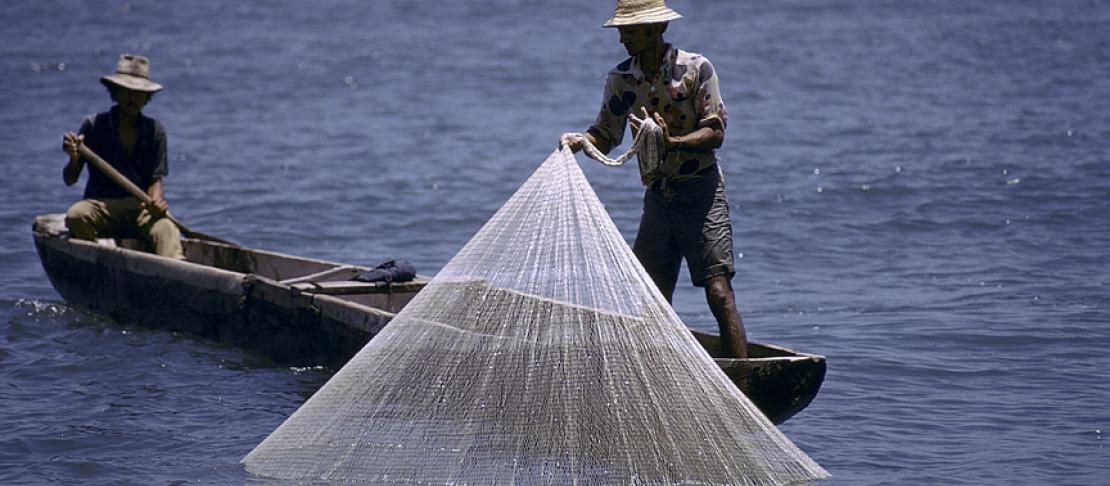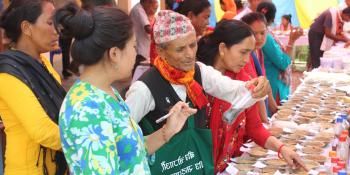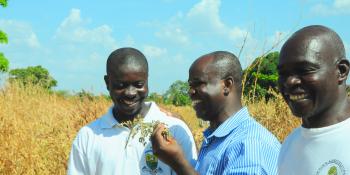New briefs highlight critical agriculture issues for UN climate talks

How will climate change impact smallholder farmers, fishers and pastoralists, and what are some of their options for adapting?
Over the last ten years, agriculture has made halting progress in global climate change negotiations. But this year presents a new opportunity for progress, with special workshops on agriculture taking place at this week's meeting of the Subsidiary Body for Scientific and Technological Advice (SBSTA) of the UN Framework Convention on Climate Change.
The workshops will address critical issues, including the need to develop “early warning systems” that would provide an alert of a potential weather-related disruption in food production, and discuss how climate change could significantly increase the burden of livestock diseases and plant pests in places like sub-Saharan Africa—further depressing yields and income for those already most vulnerable to the effects of climate change.
Ahead of the workshops, CCAFS research partners, including the International Livestock Research Institute (ILRI), WorldFish, the International Potato Center (CIP), the International Research Institute for Climate and Society (IRI), the International Center for Tropical Agriculture (CIAT), and the Fera Science Limited (UK) prepared submissions on these topics to help inform SBSTA discussions.
Download the info notes summarising the submissions
Coffey K, Haile M, Halperin M, Wamukoya G, Hansen J, Kinyangi J, Tesfaye Fantaye K, Dinesh D. 2015. Improving early warning systems for agricultural resilience in Africa.
Dinesh D, Bett B, Boone R, Grace D, Kinyangi J, Lindahl J, Mohan CV, Ramirez-Villegas J, Robinson R, Rosenstock T, Smith J and Thornton P. 2015. Impact of climate change on African agriculture: focus on pests and diseases.
Download the full submissions and background papers
Coffey K, Menghestab H, Halperin M, Wamukoya G, Hansen J, Kinyangi J, Tesfaye Fantaye K. 2015. Expanding the contribution of early warning to climate-resilient agricultural development in Africa. CCAFS Working Paper no. 115
Grace D, Bett B, Lindahl J, Robinson T. 2015. Climate and Livestock Disease: assessing the vulnerability of agricultural systems to livestock pests under climate change scenarios. CCAFS Working Paper No. 116.
Mohan CV. 2015. Climate Change and Aquatic Animal Disease. CCAFS Working Paper No. 117.
Ramirez-Villegas J, Thornton PK. 2015. Climate change impacts on African crop production. CCAFS Working Paper No. 119.
Smith J. 2015. Crops, crop pests and climate change –why Africa needs to better prepared. CCAFS Working Paper No. 114.
Thornton PK, Boone RB, Ramirez-Villegas J. 2015. Climate change impacts on livestock. CCAFS Working Paper No. 120.
Learn more about agriculture in the negotiations
Access A Guide to Negotiations on Agriculture and Climate Change
Opinion: Seizing the opportunity for Agriculture in a new climate change deal
Press release: As rising El Niño threat underscores climate-related food risks, climate panel convenes with farming on the agenda
Join us in Bonn
If you are at the SBSTA meetings, please join two side events with CCAFS and partners
5 June 2015, 18:30-20:00
Science-policy-livelihood progress through livestock-related NAMAs in Costa Rica, Kenya and Mongolia (with the World Agroforestry Centre)
6 June 2015, 13:15-14:45
Filling the Evidence Gap: Linking Agricultural and Climate Change Science and Policy in Africa (with the Government of Kenya and the Southern African Confederation of Agricultural Unions)
To follow progress on agriculture at SBSTA June 2015 please have a look at our blog series, and follow @cgiarclimate on twitter.



